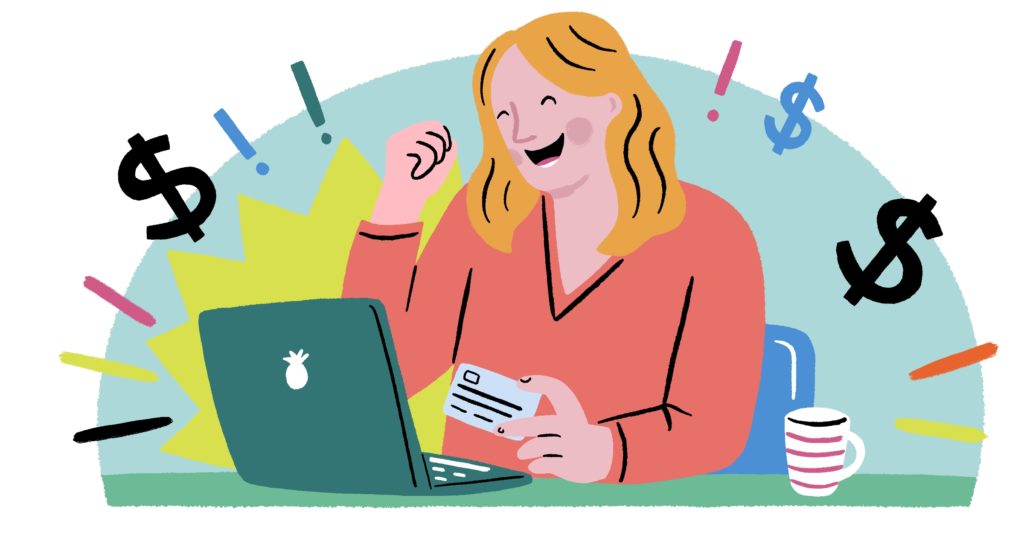
By Maria Romaszkan
It’s hard to escape sales messaging during Black Friday and Cyber Monday. Marketing teams race each other to offer more enticing deals and make us want to spend our money on things we don’t need.
For people with ADHD, this celebration of consumerism is even more challenging as they can be prone to impulsive decisions and — sometimes — money trouble.
Read on to learn tips you can use daily — not just during this Black Friday and Cyber Monday frenzy — to control your finances.
ADHD and the curse of impulsive spending
Executive dysfunction is at the core of ADHD. Some of its consequences are having challenges with impulse control and poor planning skills.
Giving in to that spontaneous impulse and buying something you find attractive at the moment provides that quick dopamine rush. It’s instant gratification — something that, to ADHD brains, sounds much better than fighting the impulse or waiting for a reward.
Tips to help resist impulsive spending
So how can you push off that instant gratification that your brain craves, and resist impulsive spending during this time of year? Here are some expert tips:
- Get rid of digital temptations
Unsubscribe from mailing lists to avoid that onslaught of promotional newsletters. You’ll also have a less cluttered inbox.
On social media, things get a bit trickier. While you can unfollow or hide the accounts of your favorite brands, you can’t do that with ads. If you prefer, uninstall the apps and use this opportunity to get a social media detox.
You can, however, hide ads on websites if you install an ad blocker. Another solution is using a browser extension that works like parental controls — you can block access or set a time limit for specific sites.
- Hide your credit cards
Leave your credit cards at home and carry cash only. You literally have a spending limit — the exact cash amount you have on hand.
While this trick doesn’t work with online shopping, you can make it a little harder for yourself to click that “buy now” button. Delete credit card details on sites you frequently use. Having to enter all that annoying information may be enough to stave off temptation.
Again, you also can block those websites to make it easier for you.
- Go with someone you trust
Ask someone to tag along when you go shopping. Go with a partner, friend or family member — someone you trust to intervene when needed.
- Put things into perspective
It’s definitely not as easy as it sounds, but try to wait a day or two before you buy something. Talking to someone is beneficial to help us put things into perspective.
Ask yourself: Do you truly want or need this or that? You can also calculate how much you’d have to work to replace the money.
- Treat yourself
Having more control over your wallet will positively impact your finances and mental health, But constant control often ends badly. If you’re always overly strict on how much and when you’re spending, you’ll probably snap and go on a shopping spree at one point.
It’s essential to treat yourself from time to time. Buy that book you’ve been eyeing for two weeks, or splurge on a bag of that fancier tea you love. We need small joys in our lives to stay healthy.
- Set a goal
Having something to save for — a new bike or vacation — can help you control impulsive spending better. Turn saving into a reward of sorts — to get that dopamine rush. Create a savings account for this purpose. Each time you withhold from impulse buying, transfer a set amount of money or the price equivalent to that account. Sure, it’s not that instant gratification we crave, but the final reward is much better.
Sources:
CHADD: ADHD and Curbing Impulsive Spending to Help Your Relationship




